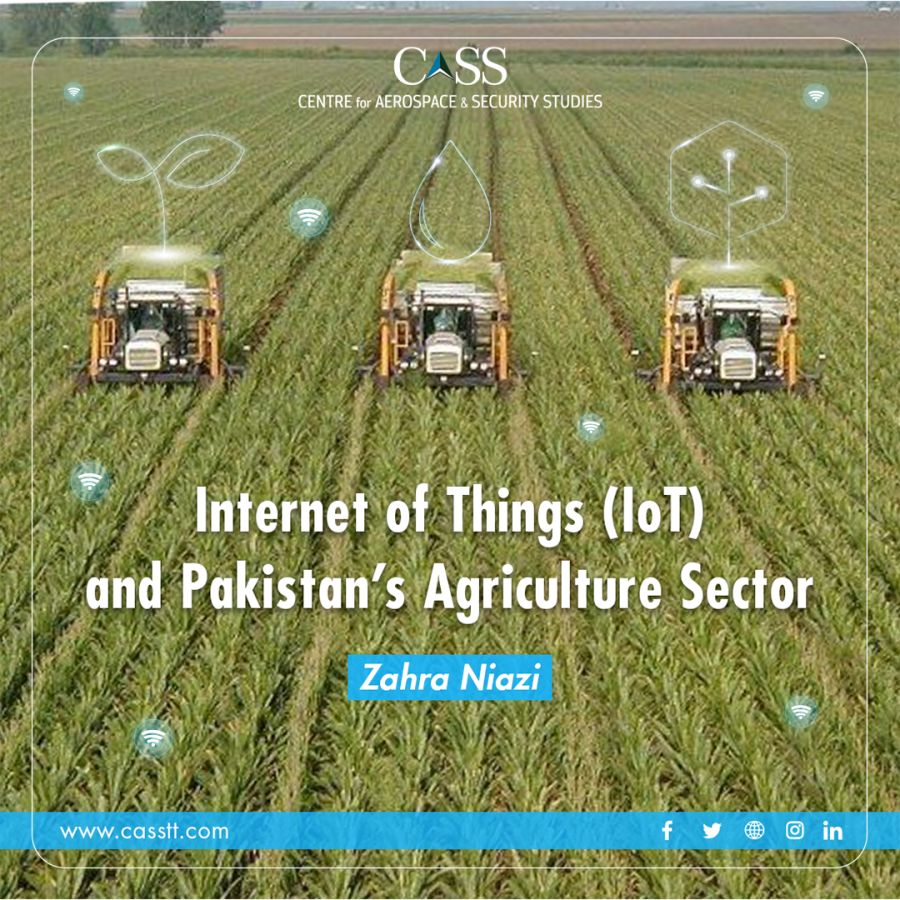In recent years, the agriculture sector of Pakistan has been facing immense setbacks due to reasons including (but not limited to) rapid climate change, decrease in the water availability, depletion of natural resources, and a rise in plant disease outbreaks, among other factors. This is inevitably leading to a decline in agricultural output and poses an enormous challenge for Pakistan given the critical contribution of this sector to the country’s economy. For reference, agricultural products remain a major source of Pakistan’s foreign exchange earnings accounting for a three-fourth share in exports. The sector also remains vital for ensuring the livelihoods of a major proportion of the population by providing employment to approximately 38.5% of the labour force. Moreover, it stimulates growth in the industrial sector by providing critical inputs, e.g. the textile industry, which has a major contribution to the manufacturing sector with the highest Quantum Index of Manufacturing (QIM), remains heavily reliant on cotton production. This is followed by the food, beverages, and tobacco industry which also remains closely connected to agriculture.
Thus, it is imperative and perhaps critical for Pakistan to combat the challenge facing its agricultural sector and enhance output by embracing modern innovation and technology, with the Internet of Things (IoT) in agriculture being a potentially promising domain in this context. IoT in agriculture employs ‘robots, drones, remote sensors and computer imaging combined with continuously progressing machine learning and analytical tools for monitoring crops, surveying and mapping the fields and providing data to farmers for rational farm management plans.’
Globally, adoption of IoT solutions in agriculture has been rising. According to estimates, the market size of IoT in agriculture is projected to reach USD 48,714 million in 2025 from USD 16,330 million in 2017. This represents a Compound Annual Growth Rate (CAGR) of 14.7% between 2017 and 2025. This reflects the plethora of benefits of IoT in agriculture. For instance, IoT-based sensors can help gather information related to soil condition, temperature, CO2 levels, humidity, or pest infections, allowing farmers to estimate the optimal input of resources and produce healthier crops. Similarly, ground and aerial drones can perform important tasks such as crop monitoring, crop spraying, crop health assessment, or field analysis. They can also identify areas where irrigation needs to be changed. Moreover, data analytics tools can help make important predictions related to the risk of crop infections and diseases, crop harvesting time, or vulnerability to extreme weather conditions, making farming more predictable and manageable. In addition, IoT-based remote sensing can determine weather patterns in agricultural fields by collecting data regarding temperature, humidity, or moisture precipitation. This can allow for the cultivation of suitable crops and help avoid crop losses. IoT-based tracker devices can also enable farmers to monitor livestock health and take preventive measures accordingly. Overall, IoT in agriculture allows for enhanced agricultural efficiency, optimal resource utilisation, reduced crop loss prospects, better quality crop production, and cleaner processes.
When it comes to Pakistan, some progress has been witnessed in this domain in recent years. For instance, agricultural drones have acquired abundant popularity. In 2020, the government announced the preparation of Pakistani-made drones to be employed in the agricultural sector. Today, agricultural drones are being utilised for aerial seeding, aerial crop survey and spraying. Recently, the National Assembly (NA) Standing Committee on National Food Security and Research (NFS&R) also proposed formulating a comprehensive policy for the usage of drone technology in the agricultural sector. Similarly, in 2020, the Punjab Information Technology Board and the Agricultural Department introduced the country’s first-ever smart farms based on IoT usage to monitor soil moisture, air humidity, precipitation level, soil erosion level, etc.
Here innovative start-ups focused on IoT in agriculture also need to be mentioned. For instance, of the many services, an AgriTech start-up, Digital Dera, gathers critical information such as regarding the depletion of soil richness of fields, weather/ temperature requirements for crops and provides training to farmers on how to deploy and use sensors. Another start-up, Cowlar provides IoT-enabled collar devices to monitor heat cycle activities and the temperature of livestock. Similarly, a start-up called ‘iFarmer’ collects data on moisture, pH etc from farms, interprets it, and sends suggestions to farmers. Recently, another welcome step has been the release of the IoT Framework by the Pakistan Telecommunication Authority (PTA) to enable development of an IoT ecosystem in the country.
To accelerate such progress, it is imperative that Pakistan allocate sufficient financial resources to Research and Development (R&D) agri-institutions and enhance Public-Private Partnerships (PPPs) to develop IoT in agriculture. This needs to be complemented by providing soft loans and subsidies to farmers to adopt new technologies while also improving their access to information. However, the long-term success of Pakistan’s efforts in this domain will be determined by the extent to which small farm-holders will be able to benefit from such innovations.
Zahra Niazi is a Researcher at the Centre for Aerospace & Security Studies (CASS), Islamabad, Pakistan. She can be reached at cass.thinkers@gmail.com




